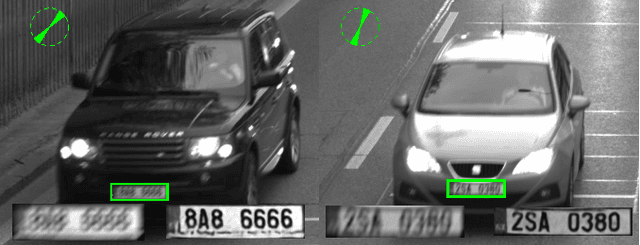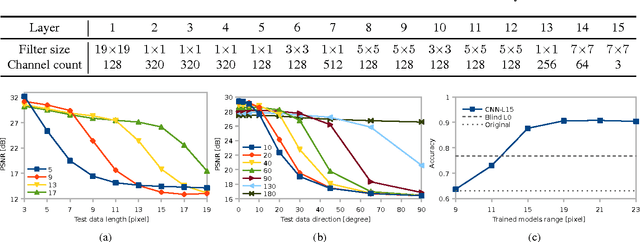Lukas Marsik
CNN for License Plate Motion Deblurring
Feb 25, 2016



Abstract:In this work we explore the previously proposed approach of direct blind deconvolution and denoising with convolutional neural networks in a situation where the blur kernels are partially constrained. We focus on blurred images from a real-life traffic surveillance system, on which we, for the first time, demonstrate that neural networks trained on artificial data provide superior reconstruction quality on real images compared to traditional blind deconvolution methods. The training data is easy to obtain by blurring sharp photos from a target system with a very rough approximation of the expected blur kernels, thereby allowing custom CNNs to be trained for a specific application (image content and blur range). Additionally, we evaluate the behavior and limits of the CNNs with respect to blur direction range and length.
 Add to Chrome
Add to Chrome Add to Firefox
Add to Firefox Add to Edge
Add to Edge